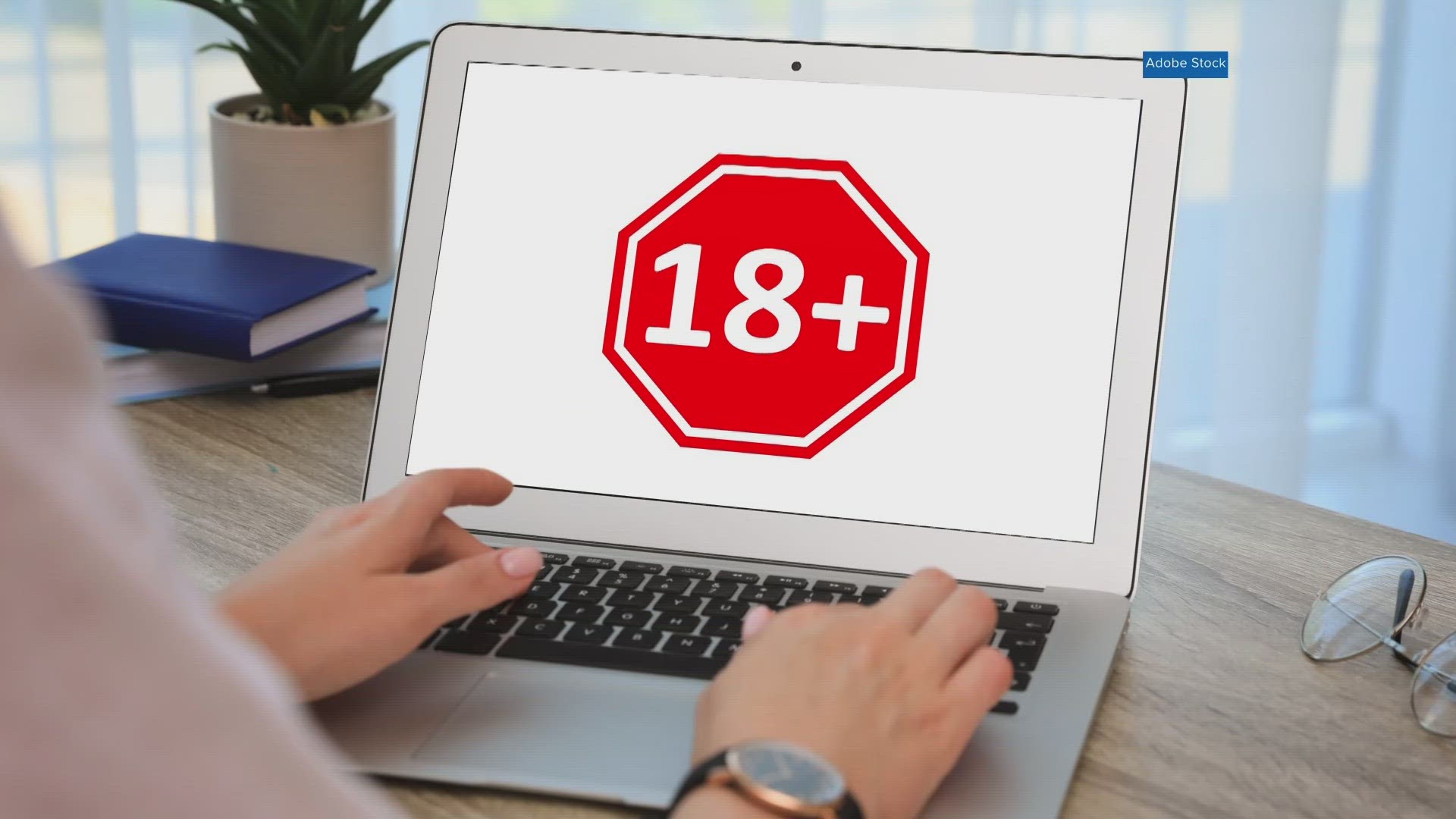NASHVILLE, Tenn. — A bill going through the Tennessee legislature could change the way people in the state access "adult-oriented" websites, leading to concerns about its constitutionality.
Sen. Becky Duncan Massey (R - Knoxville) introduced the bill, SB 1792, and its most recent amendment. It is otherwise named the "Protect Tennessee Minors Act," and would require adult websites to implement a way to verify users' ages. The House version, HB 1614, was introduced by Rep. Patsy Hazlewood (R - Signal Mountain).
Those methods include either uploading a photo of the user "between the attempt to view content harmful to minors and the viewing of content harmful to minors" and comparing it to a photo ID, or uploading "private transactional data" to verify they are at least 18 years old. That data can include records of mortgage payments or paystubs.
Several other states have implemented similar anti-porn bills, such as Louisiana and Texas. In Texas, the law was briefly blocked after Pornhub and other organizations sued the state, but a federal judge allowed it to go into effect.
"Unfortunately, the Texas law for age verification is ineffective, haphazard, and dangerous,” a statement read, according to a copy Pornhub provided to NBC News. “Not only will it not actually protect children, but it will also inevitably reduce content creators’ ability to post and distribute legal adult content and directly impact their ability to share the artistic messages they want to convey with it.”
The American Civil Liberties Union also sued Texas over its version of the law. Following Texas' passage of the law, Pornhub also restricted access from the state.
In Tennessee, as long as a website hosts videos and images that are considered "harmful to minors," the website would need to verify users are at least 18 years old. The Tennessee bill has an extensive definition of which content is harmful but broadly defines it as any content that is sexual or depicts sexual organs. The bill also said content is considered harmful to minors if it lacks "serious literary, artistic, political or scientific value for minors."
It also said content would be harmful to minors if it appeals to "the prurient interest," a term that was under intense examination as lawmakers considered banning drag performances during the previous legislative session.
"You can enter a picture of an ID, a state-issued ID, or an acceptable ID and you can be on this site for up to 60 minutes, then you would have to go off of this site," said Massey during a committee meeting. "It would not necessarily have to be a Tennessee ID."
The website would need to hold onto at least seven years worth of "historical anonymized age-verification data," while also not retaining any personally identifying information of users. If websites don't institute some way to verify user ages, they would specifically be liable to lawsuits. they would also be open to lawsuits if they hold onto personally identifying user information.
The bill also makes it a Class-C felony to not verify user ages and to hold onto identifying information.
"The precise increase in business expenditures cannot be quantified with reasonable certainty," the amended bill's fiscal note said.
Massey said Hazlewood brought the proposal to her, and she said she didn't realize people didn't already need to upload IDs to access porn. She said she worked with the Attorney General's office to ensure its constitutionality.
"It doesn't violate privacy, we just gotta make sure kids aren't exposed to that, to pornography," she said.
The bill would take effect on Jan. 1, 2025, if passed into law. The full Senate is expected to consider the bill on April 9. It was placed behind the budget in the House.

